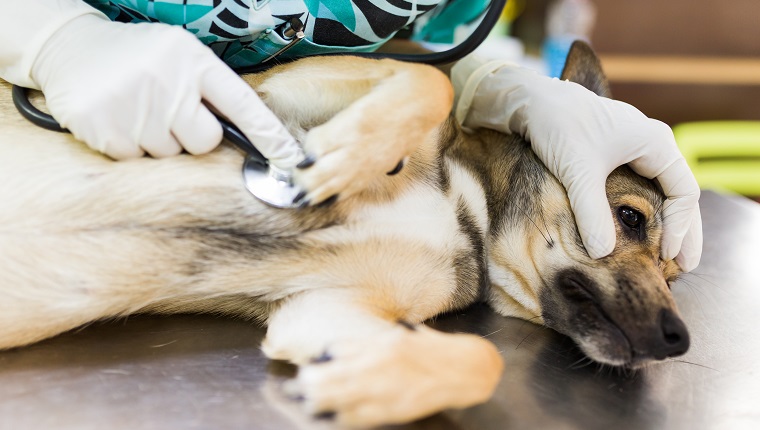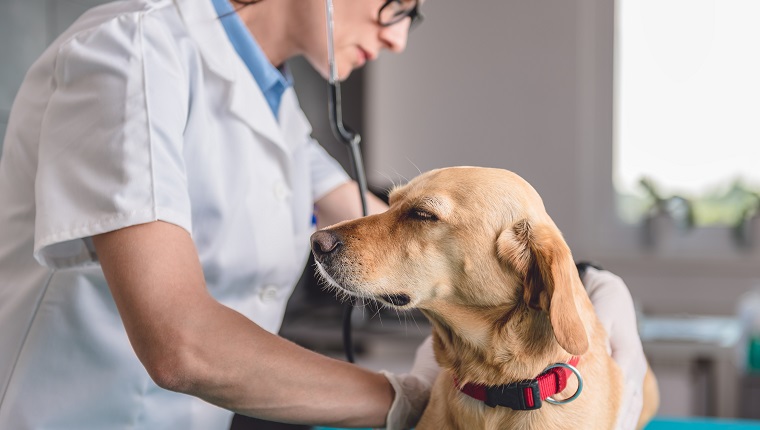Lymphomatoid granulomatosis in dogs is a rare medical condition that occurs when abnormal, cancerous lymphoid cells make their way into the lungs. The cancer may also spread and affect other areas of the body including the kidneys, heart, and liver.
This condition seems most prevalent in larger dogs and purebred dogs.
If you see signs that your canine might be developing cancer, then you must consult your veterinarian for a proper diagnosis and course of treatment. Here’s what you should know about the symptoms, causes, and treatments of lymphomatoid granulomatosis in dogs.
Symptoms Of Lymphomatoid Granulomatosis In Dogs
Lymphomatoid granulomatosis in dogs produces a number of symptoms that often affect the respiratory system. Some of the most common symptoms include:
- Breathing difficulties
- Coughing
- Losing weight
- Nasal discharge
- Developing a fever
- Loss of appetite
Causes Of Lymphomatoid Granulomatosis In Dogs

Lymphomatoid granulomatosis in dogs is considered to be idiopathic, which means that there is no currently known cause.
However, it seems that purebred dogs and larger dog breeds have a higher risk of developing the condition.
Veterinary Treatments
If you start to suspect that your dog might be developing lymphomatoid granulomatosis, then your veterinarian will want to carry out a full physical examination. They’ll order blood and urine tests and may also use X-rays to analyze the condition of the lungs.
Additionally, the vet may suggest a biopsy of the lung tissue to confirm a diagnosis.
Sadly, there is no currently known treatment for this condition. However, in some cases, vets may suggest a course of chemotherapy, possibly alongside surgically excising any affected tissue.
When managing the condition at home, it is important that your dog keeps up regular appointments with their vet to properly and closely monitor their health.
Has your dog developed lymphomatoid granulomatosis? What steps did your vet suggest to help manage the condition? Tell us all about it in the comments below.









